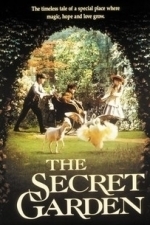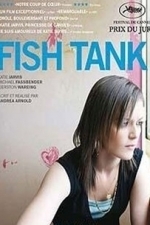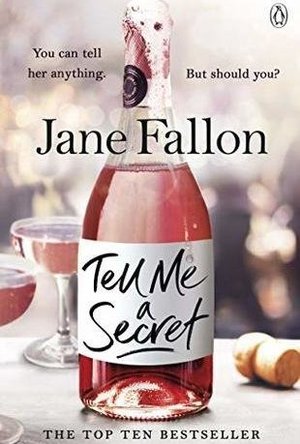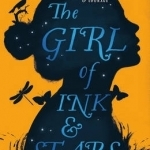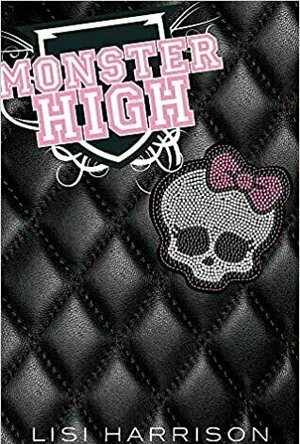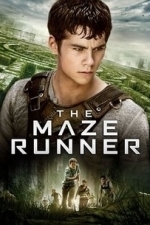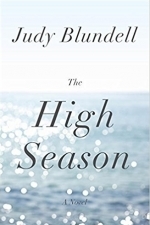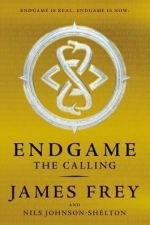Search
Jonas Carpignano recommended The Secret Garden (1993) in Movies (curated)
Jonas Carpignano recommended Fish Tank (2010) in Movies (curated)
BookInspector (124 KP) rated Tell Me a Secret in Books
Sep 24, 2020
The protagonist in this story is Holly, a woman in her forties, who got promoted in her job on a TV show. I really like that the author utilizes her knowledge of the film industry throughout her books. I really like reading about “behind the scenes” of film making. This story was a little different than the previous books I read, first of all, there is no man involved in this story, and secondly, it is told from a single (Holly’s) perspective. Even though a single perspective was sufficient to get into the novel, I always liked that Jane Fallon incorporated rivals thoughts as well.
I liked the way the author chose her characters, they were different, interesting and in a way, mysterious. I really liked that the reader can get to know them better throughout the book. Holly was a sweet character, sharing her life story as well as the present events, but she lacked the “revenge” spirit. There were so many juicy discoveries, but Holly didn’t use them, and that was a shame. I loved the twists and turns in this novel, the pages just fly by while reading this book. One thing that truly surprises me is the number of alcoholic drinks the characters consume. How can they even function after downing bottles of wine? The topic discussed in this book is “being a single mother when you get pregnant at a very young age”. Holly’s story is inspirational and I liked that the author outlined the difficulties it can bring.
As I mentioned before, Jane Fallon is a master of what she does, and she definitely knows how to keep a reader “glued” to her book. The language used is easy to understand and the decent chapter length made this novel a very enjoyable read. The ending rounded up the novel very nicely and left me satisfied with an outcome. So, to conclude, Jane Fallon always provides intriguing stories with clever and believable characters, and the plot is filled with office rivalry as well as unexpected discoveries. I really enjoyed this book, and I will definitely recommend it to everybody. Enjoy!
I liked the way the author chose her characters, they were different, interesting and in a way, mysterious. I really liked that the reader can get to know them better throughout the book. Holly was a sweet character, sharing her life story as well as the present events, but she lacked the “revenge” spirit. There were so many juicy discoveries, but Holly didn’t use them, and that was a shame. I loved the twists and turns in this novel, the pages just fly by while reading this book. One thing that truly surprises me is the number of alcoholic drinks the characters consume. How can they even function after downing bottles of wine? The topic discussed in this book is “being a single mother when you get pregnant at a very young age”. Holly’s story is inspirational and I liked that the author outlined the difficulties it can bring.
As I mentioned before, Jane Fallon is a master of what she does, and she definitely knows how to keep a reader “glued” to her book. The language used is easy to understand and the decent chapter length made this novel a very enjoyable read. The ending rounded up the novel very nicely and left me satisfied with an outcome. So, to conclude, Jane Fallon always provides intriguing stories with clever and believable characters, and the plot is filled with office rivalry as well as unexpected discoveries. I really enjoyed this book, and I will definitely recommend it to everybody. Enjoy!
Eleanor Luhar (47 KP) rated The Girl of Ink & Stars in Books
Jun 24, 2019
This is quite a short YA novel, a standalone book that I just picked up on impulse. I immediately got the impression that this was aimed at slightly younger teens - the protagonist was only thirteen, so I didn't really connect that much. It's that awkward age where you think you're old, but you're not. I could imagine thirteen-year-old me would enjoy this quite a bit.
Isabella lives alone with her father, a skilled cartographer. Her mother and twin brother had passed away, leaving the two alone. The Governor had taken control of the land, and his daughter, Lupe, attended the same school as Isabella. The two were very close, and Isabella's angered outburst causes Lupe to run off into the Hidden Territories to prove she wasn't "rotten". A classmate of theirs had recently been found dead, and Lupe was going to find the killer.
Isabella, disguised as her deceased brother, shows Lupe's note to her father and a small group begin going after her, Isabella included. They follow a map passed down to Isabella's mother, through blackened forests scattered with bones. They do find Lupe, along with the Banished and, worst of all, the hell dogs from Isabella's favourite myth.
This myth turns out to play an important role in their journey, and Lupe discovers something about her father when he sacrifices himself to fend off the wolves. They face Yote himself - the mythical fire demon - and Isabella finds herself returning home without Lupe.
It is quite a young teen book, as I said, and the plot develops all because of Isabella calling Lupe's family "rotten". This drama and exaggeration is pretty typical of a children's/teen book, I find, and seemed a little immature to me. The writing was great, I just couldn't get over the simplicity and immaturity of the plot at times.
For a teen book, it was quite dark at times - a lot of death was included. The ending was both happy and sad, which is nice. I get quite fed up of too many happy endings. 3 stars.
Isabella lives alone with her father, a skilled cartographer. Her mother and twin brother had passed away, leaving the two alone. The Governor had taken control of the land, and his daughter, Lupe, attended the same school as Isabella. The two were very close, and Isabella's angered outburst causes Lupe to run off into the Hidden Territories to prove she wasn't "rotten". A classmate of theirs had recently been found dead, and Lupe was going to find the killer.
Isabella, disguised as her deceased brother, shows Lupe's note to her father and a small group begin going after her, Isabella included. They follow a map passed down to Isabella's mother, through blackened forests scattered with bones. They do find Lupe, along with the Banished and, worst of all, the hell dogs from Isabella's favourite myth.
This myth turns out to play an important role in their journey, and Lupe discovers something about her father when he sacrifices himself to fend off the wolves. They face Yote himself - the mythical fire demon - and Isabella finds herself returning home without Lupe.
It is quite a young teen book, as I said, and the plot develops all because of Isabella calling Lupe's family "rotten". This drama and exaggeration is pretty typical of a children's/teen book, I find, and seemed a little immature to me. The writing was great, I just couldn't get over the simplicity and immaturity of the plot at times.
For a teen book, it was quite dark at times - a lot of death was included. The ending was both happy and sad, which is nice. I get quite fed up of too many happy endings. 3 stars.
ArecRain (8 KP) rated Monster High (Monster High, #1) in Books
Jan 18, 2018
I am twenty years old and I loved this book more than I think an intelligent college student should. There were just way to many things that kept me from not turning the pages and walking away. In fact, I have only one negative thing to say about this book.
This is a book meant strictly for pleasure reading for fantasy and novels alike. While it kept true to the high school novel feel, it also had enough fantasy to make it that much more interesting than just high school girls worrying about losing their boy toys. It was similar to any other young adult novel I have read except for the one factor making it completely different: it revolves around the descendents of monsters. If it wasnt for that, I probably would have hated this book. I have always loved everything to do with fantast monsters and creatures. The fact that Mattel created a doll series about it was cute, but the book made it enjoyable for an audience older than seven years of age.
Quite honestly, I am tired of all the criticism of this book. It is meant to be a light-hearted, moral teaching novel meant for young adults, therefore, it is meant to relatable by teens. All the slang that the students use is how the real world is, people. I am sorry if you dont understand their lingo, but its how kids are, especially high schoolers. They invent words that they think are cool and some tend to catch on. Melodys family is from Beverly Hills. Why wouldnt they have designer clothes? Frankie was born 15 days ago. What else would she wear but what magazines and the media tell her to, which just happens to be designer clothing. As for the celebrity names dropped, this is not in the leagues of Lewis or Tolkien. Few people will read this in 50 years when the current generation doesnt know who Lady Gaga or Justin Beiber is. This was meant for the generation here and now.
This is not a deep novel people. There is no great mission by amazing warriors meant to save the world. The romance is just that: cute teen romance. No sex and no deep involved feeling that are too complicated. If this novel was not grown up for you, then you probably shouldnt be picking up books from the young adult section. Try some Lukyanenko novels and then talk to me. Thanks.
Moving on. The books two main female characters are Melody and Frankie Stein. The description is a bit misleading, however. Frankie and Melody actually dont even really talk to each until the end. Before tragedy strikes, bringing them together, the two are lost in their own little worlds, hardly even concerned with each other. Both girls are focused on making it a new community and high school, while dealing with major crushes and vicious students. Each makes their own friends. Ones are psychotic back-stabbers that need to have cell phone service banned and barred. The others are true and stand behind her even if they dont agree with her.
The characters were adorable, crazy, funny, and had so much well character. It was easy to tell one from another and I absolutely loved reading about them interacting with each other. Most of the novel had me either laughing, or setting the book aside until I could get over my empathetic embarrassment. I found myself sympathizing with all the characters points of view even though none of them know the whole picture like the reader does. Not to mention, sharing Frankies frustration. I was with her 100% even though I kept telling myself her parents way was the safest. How could you not feel frustrated when everyone was telling her to have pride in what she was and the forcing who to hide what she was? Hypocritical much? I thought so.
Now to the only negative thing I have to say about this book: I wanted to continuously shut Melody down. I found it down right annoying that she thought she knew how Jackson (Dr. Jekylls grandson) and Frankie (Frankensteins granddaughter) felt about being outcasts just because she had a nose she considered ugly. Are you kidding me? Really? I thought this was a poor attempt by Harrison to give Melody and Frankie some common ground. Being made fun of because of your nose is nowhere near the devastation of being hunted down because your grandfather was a chemical addict or a stitched together living doll. Oh, I am sure that it was tragic enough for Melody, but how dare she say she understood what it was like. Melody was never in mortal danger for her difference, so please, honey, get off your self-righteous horse.
The main reason I loved this book so much was because it was so distracting. It was such a light and fluffy book about the simplicity that is high school life. It was refreshing from all these novels nowadays where the protagonist is the only person capable of saving the world, their loved, blah blah blah, while the protagonist is some immensely powerful being. Note to writers: that scenario is getting old real quick.
This is a book meant strictly for pleasure reading for fantasy and novels alike. While it kept true to the high school novel feel, it also had enough fantasy to make it that much more interesting than just high school girls worrying about losing their boy toys. It was similar to any other young adult novel I have read except for the one factor making it completely different: it revolves around the descendents of monsters. If it wasnt for that, I probably would have hated this book. I have always loved everything to do with fantast monsters and creatures. The fact that Mattel created a doll series about it was cute, but the book made it enjoyable for an audience older than seven years of age.
Quite honestly, I am tired of all the criticism of this book. It is meant to be a light-hearted, moral teaching novel meant for young adults, therefore, it is meant to relatable by teens. All the slang that the students use is how the real world is, people. I am sorry if you dont understand their lingo, but its how kids are, especially high schoolers. They invent words that they think are cool and some tend to catch on. Melodys family is from Beverly Hills. Why wouldnt they have designer clothes? Frankie was born 15 days ago. What else would she wear but what magazines and the media tell her to, which just happens to be designer clothing. As for the celebrity names dropped, this is not in the leagues of Lewis or Tolkien. Few people will read this in 50 years when the current generation doesnt know who Lady Gaga or Justin Beiber is. This was meant for the generation here and now.
This is not a deep novel people. There is no great mission by amazing warriors meant to save the world. The romance is just that: cute teen romance. No sex and no deep involved feeling that are too complicated. If this novel was not grown up for you, then you probably shouldnt be picking up books from the young adult section. Try some Lukyanenko novels and then talk to me. Thanks.
Moving on. The books two main female characters are Melody and Frankie Stein. The description is a bit misleading, however. Frankie and Melody actually dont even really talk to each until the end. Before tragedy strikes, bringing them together, the two are lost in their own little worlds, hardly even concerned with each other. Both girls are focused on making it a new community and high school, while dealing with major crushes and vicious students. Each makes their own friends. Ones are psychotic back-stabbers that need to have cell phone service banned and barred. The others are true and stand behind her even if they dont agree with her.
The characters were adorable, crazy, funny, and had so much well character. It was easy to tell one from another and I absolutely loved reading about them interacting with each other. Most of the novel had me either laughing, or setting the book aside until I could get over my empathetic embarrassment. I found myself sympathizing with all the characters points of view even though none of them know the whole picture like the reader does. Not to mention, sharing Frankies frustration. I was with her 100% even though I kept telling myself her parents way was the safest. How could you not feel frustrated when everyone was telling her to have pride in what she was and the forcing who to hide what she was? Hypocritical much? I thought so.
Now to the only negative thing I have to say about this book: I wanted to continuously shut Melody down. I found it down right annoying that she thought she knew how Jackson (Dr. Jekylls grandson) and Frankie (Frankensteins granddaughter) felt about being outcasts just because she had a nose she considered ugly. Are you kidding me? Really? I thought this was a poor attempt by Harrison to give Melody and Frankie some common ground. Being made fun of because of your nose is nowhere near the devastation of being hunted down because your grandfather was a chemical addict or a stitched together living doll. Oh, I am sure that it was tragic enough for Melody, but how dare she say she understood what it was like. Melody was never in mortal danger for her difference, so please, honey, get off your self-righteous horse.
The main reason I loved this book so much was because it was so distracting. It was such a light and fluffy book about the simplicity that is high school life. It was refreshing from all these novels nowadays where the protagonist is the only person capable of saving the world, their loved, blah blah blah, while the protagonist is some immensely powerful being. Note to writers: that scenario is getting old real quick.
Hazel (1853 KP) rated Cuckoo Song in Books
Dec 14, 2018
<i>I received this book for free through Goodreads First Reads.</i>
Frances Hardinge’s <i>Cuckoo Song</i> is a historical, horror story for children. Six years have past since the end of the First World War, a war in which the Crescent family lost their eldest child. Eleven-year-old Theresa Crescent “Triss” lives with her parents and nine year old sister, Penelope “Pen” in the fictional town of Ellchester, England. Since losing Sebastian, Triss has become a very frail child and so it is no surprise to her parents that she develops an awful fever after falling into a millpond. The question, though, is how she came to be in the pond to begin with and why Pen is so scared of her?
Things become even more mystifying when Triss sees dolls start to move, finds leaves on her pillow, and is constantly ravenously hungry. Her parents begin to consider that Triss is suffering from some form of mental illness, however, Pen, the bad-tempered child, is adamant that that is not the case. She claims that Triss is a fake.
The horrible realization is that perhaps Triss is not Triss at all. This discovery leads the tale into paranormal territory with the introduction of unique new creatures: Besiders.
Cuckoo Song is not just an entertaining, fantastical story; it also deals with themes of family and personal emotion. Piers and Celeste Crescent are examples of parents whose behaviour and response to the death of a child impact on their remaining children. Triss becomes a child they want to protect and save leaving Pen to become an attention-seeking troublemaker.
As the story progresses, Triss and Pen’s relationship develops, or rather Pen and Not-Triss’, into something more recognizable and sisterly. Through their strength and newfound love for each other, they fight to get the happy ending they deserve. And through it all Triss discovers that just because someone calls you a monster, it does not mean that you are a monster.
The 1920’s setting did not feel quite accurate. At times it felt as though the story could have been set today. This, however, was not a major issue as, apart from Sebastian’s death during WW1, the time period was not a key aspect of the plot.
Initially the children, particularly Pen, were written in a way that made them seem older than Hardinge intended them to be, although by the end it is clear that they are fairly young. This is shown in the way that Pen begins to become attached to, and slightly more dependent, on Triss.
It is difficult to say who the target audience of <i>Cuckoo Song</i> is. The protagonist is eleven but the writing may be a little difficult for some children, on the other hand it cannot exactly be classed as Young Adult fiction since the characters are not even in their teens.
Overall, <i>Cuckoo Song</i> is an exciting, fast paced, fairy tale-like story with original characters. It is not scary and is fun to read; there is nothing to stop older readers from enjoying it too!
Frances Hardinge’s <i>Cuckoo Song</i> is a historical, horror story for children. Six years have past since the end of the First World War, a war in which the Crescent family lost their eldest child. Eleven-year-old Theresa Crescent “Triss” lives with her parents and nine year old sister, Penelope “Pen” in the fictional town of Ellchester, England. Since losing Sebastian, Triss has become a very frail child and so it is no surprise to her parents that she develops an awful fever after falling into a millpond. The question, though, is how she came to be in the pond to begin with and why Pen is so scared of her?
Things become even more mystifying when Triss sees dolls start to move, finds leaves on her pillow, and is constantly ravenously hungry. Her parents begin to consider that Triss is suffering from some form of mental illness, however, Pen, the bad-tempered child, is adamant that that is not the case. She claims that Triss is a fake.
The horrible realization is that perhaps Triss is not Triss at all. This discovery leads the tale into paranormal territory with the introduction of unique new creatures: Besiders.
Cuckoo Song is not just an entertaining, fantastical story; it also deals with themes of family and personal emotion. Piers and Celeste Crescent are examples of parents whose behaviour and response to the death of a child impact on their remaining children. Triss becomes a child they want to protect and save leaving Pen to become an attention-seeking troublemaker.
As the story progresses, Triss and Pen’s relationship develops, or rather Pen and Not-Triss’, into something more recognizable and sisterly. Through their strength and newfound love for each other, they fight to get the happy ending they deserve. And through it all Triss discovers that just because someone calls you a monster, it does not mean that you are a monster.
The 1920’s setting did not feel quite accurate. At times it felt as though the story could have been set today. This, however, was not a major issue as, apart from Sebastian’s death during WW1, the time period was not a key aspect of the plot.
Initially the children, particularly Pen, were written in a way that made them seem older than Hardinge intended them to be, although by the end it is clear that they are fairly young. This is shown in the way that Pen begins to become attached to, and slightly more dependent, on Triss.
It is difficult to say who the target audience of <i>Cuckoo Song</i> is. The protagonist is eleven but the writing may be a little difficult for some children, on the other hand it cannot exactly be classed as Young Adult fiction since the characters are not even in their teens.
Overall, <i>Cuckoo Song</i> is an exciting, fast paced, fairy tale-like story with original characters. It is not scary and is fun to read; there is nothing to stop older readers from enjoying it too!
Gareth von Kallenbach (980 KP) rated The Maze Runner (2014) in Movies
Aug 6, 2019
Kids have one heck of an imagination, and “The Maze Runner” gives off the impression that is exactly where its plot came from. The film is an adaption of the first book in the young adult sci-fi series written by James Dashner.
In the film, the action starts right out of the gate with a boy in a cage being delivered up to a strange place. Upon his arrival, he encounters a group of boys, each of which arrived in the same way. The boys created a sort of primitive community in a beautiful green glade. Each boy is assigned a specific role in order to contribute to their survival. None of them are able to remember where they came from or their life before arriving.
The plot quickly begins to revolve around the boys who have been deemed maze runners. The glade in which the community resides is surrounded, or I should say enclosed, by a gigantic stone maze. The maze runners run through the maze trying to find out more about it in order to eventually escape. But, the maze is unsolvable because it changes shape each day and is too dangerous to stay in overnight.
The main protagonist Thomas (Dylan O’Brien) quickly interjects himself into the maze runner role, against the wishes of the community. But it isn’t long until he proves himself capable of the role when he becomes the first boy to kill what they call a “griever.” His arrival marks the beginning of new hope for the boys’ escape. At this point, one must wonder why none of the boys had ever killed a “griever” before the arrival of Thomas.
The “grievers” are cyborg spiders residing within the maze. They are the main threat keeping the boys confined to the glade, and they come off as an incredibly hokey aspect of the film. However, this may be really enjoyable for fans of corny science fiction.
I have not had a chance to read the series myself, but something tells me details were left out of the film which would have brought the quality of the plot up a level.
Unfortunately, the plot is poorly developed in crucial areas which could have made the film great, had they been further developed. For example, the creators of the strange place and the robotic spiders are not given much depth. The lack of detail in this area is what gives the execution of the plot a make-believe feel. Perhaps this part of the plot is purposefully left open to lay the ground work for the rest of the series to be made into film.
All criticism aside, what makes “The Maze Runner” enjoyable is that it stems from a unique idea. It takes the audience on a new adventure. However, I would hardly say the film aims to please a young adult audience. Its execution seems tailored for tweens. It lacks any real graphic violence, staying well within its PG rating.
I give “Maze Runner” 3 out of 5 stars.
In the film, the action starts right out of the gate with a boy in a cage being delivered up to a strange place. Upon his arrival, he encounters a group of boys, each of which arrived in the same way. The boys created a sort of primitive community in a beautiful green glade. Each boy is assigned a specific role in order to contribute to their survival. None of them are able to remember where they came from or their life before arriving.
The plot quickly begins to revolve around the boys who have been deemed maze runners. The glade in which the community resides is surrounded, or I should say enclosed, by a gigantic stone maze. The maze runners run through the maze trying to find out more about it in order to eventually escape. But, the maze is unsolvable because it changes shape each day and is too dangerous to stay in overnight.
The main protagonist Thomas (Dylan O’Brien) quickly interjects himself into the maze runner role, against the wishes of the community. But it isn’t long until he proves himself capable of the role when he becomes the first boy to kill what they call a “griever.” His arrival marks the beginning of new hope for the boys’ escape. At this point, one must wonder why none of the boys had ever killed a “griever” before the arrival of Thomas.
The “grievers” are cyborg spiders residing within the maze. They are the main threat keeping the boys confined to the glade, and they come off as an incredibly hokey aspect of the film. However, this may be really enjoyable for fans of corny science fiction.
I have not had a chance to read the series myself, but something tells me details were left out of the film which would have brought the quality of the plot up a level.
Unfortunately, the plot is poorly developed in crucial areas which could have made the film great, had they been further developed. For example, the creators of the strange place and the robotic spiders are not given much depth. The lack of detail in this area is what gives the execution of the plot a make-believe feel. Perhaps this part of the plot is purposefully left open to lay the ground work for the rest of the series to be made into film.
All criticism aside, what makes “The Maze Runner” enjoyable is that it stems from a unique idea. It takes the audience on a new adventure. However, I would hardly say the film aims to please a young adult audience. Its execution seems tailored for tweens. It lacks any real graphic violence, staying well within its PG rating.
I give “Maze Runner” 3 out of 5 stars.
FilmIntuition (33 KP) rated The High Season in Books
May 23, 2018
A Terrific Beach Read
(Note: I received an Advance Readers Copy of this book in exchange for an honest review.)
You can practically feel the sunlight pouring off the pages of The High Season, which, thanks to National Book Award Winner Judy Blundell's lyrical and painterly prose, is as picturesque as the summery Long Island beach house where the novel's action is set.
Told from the points-of-view of multiple characters, the instantly compelling book introduces us to the local residents and seasonal visitors of a beautiful beach community that's big enough to enjoy but small enough that secrets don't stay that way for long as its inhabitants soon find out.
Although it's made fiscal sense, renting their gorgeous home every summer in order to afford to live in it during the rest of the year has begun to wear on our main protagonist, museum director Ruthie Dutton and her fifteen-year-old daughter Jem.
Renovating a perfect beach house only to need to leave it during its peak season has been a leading cause of the breakdown of her marriage to Mike, with whom she's still on excellent terms, and even though the mature Jem puts up a good front, Ruthie hates the idea of uprooting her each summer.
And when her latest renter makes herself home a little too quickly – setting her sights on Mike, her friends, and possibly a permanent place in North Fork – Ruthie finds herself at war, especially after the renter's college aged stepson takes an interest in Jem, and nonprofit art world politics threaten her livelihood.
Breaking down the action on several fronts, we're also introduced to Ruthie's enigmatic young coworker Doe who's perfected the art of blending in anywhere and with anyone and it's in Doe's chapters that Blundell and the reader has the most fun as she gently satirizes the rich.
The first book the author has penned exclusively for adults, admittedly there are times when The High Season's older characters (especially Ruthie) act more immature than their younger counterparts do in incongruous scenes that hinders their relatability.
A gifted stylist, however, Blundell doesn't lose us for long. As high stakes subplots begin to collide, the book rebounds from a slightly muddled middle act – delivering a final hundred pages you'll fly right through just as fast as this entertaining read flies off shelves this summer.
You can practically feel the sunlight pouring off the pages of The High Season, which, thanks to National Book Award Winner Judy Blundell's lyrical and painterly prose, is as picturesque as the summery Long Island beach house where the novel's action is set.
Told from the points-of-view of multiple characters, the instantly compelling book introduces us to the local residents and seasonal visitors of a beautiful beach community that's big enough to enjoy but small enough that secrets don't stay that way for long as its inhabitants soon find out.
Although it's made fiscal sense, renting their gorgeous home every summer in order to afford to live in it during the rest of the year has begun to wear on our main protagonist, museum director Ruthie Dutton and her fifteen-year-old daughter Jem.
Renovating a perfect beach house only to need to leave it during its peak season has been a leading cause of the breakdown of her marriage to Mike, with whom she's still on excellent terms, and even though the mature Jem puts up a good front, Ruthie hates the idea of uprooting her each summer.
And when her latest renter makes herself home a little too quickly – setting her sights on Mike, her friends, and possibly a permanent place in North Fork – Ruthie finds herself at war, especially after the renter's college aged stepson takes an interest in Jem, and nonprofit art world politics threaten her livelihood.
Breaking down the action on several fronts, we're also introduced to Ruthie's enigmatic young coworker Doe who's perfected the art of blending in anywhere and with anyone and it's in Doe's chapters that Blundell and the reader has the most fun as she gently satirizes the rich.
The first book the author has penned exclusively for adults, admittedly there are times when The High Season's older characters (especially Ruthie) act more immature than their younger counterparts do in incongruous scenes that hinders their relatability.
A gifted stylist, however, Blundell doesn't lose us for long. As high stakes subplots begin to collide, the book rebounds from a slightly muddled middle act – delivering a final hundred pages you'll fly right through just as fast as this entertaining read flies off shelves this summer.
Hazel (1853 KP) rated The Paper Magician (The Paper Magician Trilogy, #1) in Books
Dec 7, 2018
<i>This eBook was provided by the publisher via NetGalley in exchange for an honest review</i>
<i>The Paper Magician</i> is the first in a trilogy of fantasy books by Charlie N. Holmberg. Set in London in the early 1900s it explores the idea of magic in a unique and original way. The protagonist, Ceony Twill, is only nineteen and has recently graduated from the Tagis Praff School for the Magically Inclined. For the next few years of her life she is to be apprenticed to a magician who will teach her to use the magic of their chosen material. To Ceony’s disgust she is paired with Magician Emery Thane, a Folder. She is going to spend the rest her life bonded to an extremely boring object: paper.
Ceony and the reader soon discover that there is a particular art to folding paper correctly in order to produce something (e.g. a paper bird) that lives and breathes. But there is something peculiar about Mg. Thane and he ends up in a life and death situation that only Ceony can save him from.
The originality of the plot made this book fascinating to read. A large variety of magical abilities have been explored throughout novels over the years but until now I have not read one that focuses on the material paper. The author has taken something that exists in the known world – origami – and given it a whole new purpose.
Both Ceony and Mg. Thane are likable characters that have a variety of character traits that appeal to a range of different personalities. There were times when their behaviour and speech felt too contemporary for the historical setting resulting in the time period being completely irrelevant to the narrative. Despite this the general storyline was still exciting.
Fantasy novels naturally involve ideas a little beyond the average person’s comprehension, however the middle of <i>The Paper Magician</i> became so far fetched that it was a little confusing for a while.
Overall, <i>The Paper Magician</i> is a fast paced, easy to read book suitable for young adults and fans of fantasy and magic. The story continues in <i>The Glass Magician</i> and the third and finally book can be expected in 2015.
<i>The Paper Magician</i> is the first in a trilogy of fantasy books by Charlie N. Holmberg. Set in London in the early 1900s it explores the idea of magic in a unique and original way. The protagonist, Ceony Twill, is only nineteen and has recently graduated from the Tagis Praff School for the Magically Inclined. For the next few years of her life she is to be apprenticed to a magician who will teach her to use the magic of their chosen material. To Ceony’s disgust she is paired with Magician Emery Thane, a Folder. She is going to spend the rest her life bonded to an extremely boring object: paper.
Ceony and the reader soon discover that there is a particular art to folding paper correctly in order to produce something (e.g. a paper bird) that lives and breathes. But there is something peculiar about Mg. Thane and he ends up in a life and death situation that only Ceony can save him from.
The originality of the plot made this book fascinating to read. A large variety of magical abilities have been explored throughout novels over the years but until now I have not read one that focuses on the material paper. The author has taken something that exists in the known world – origami – and given it a whole new purpose.
Both Ceony and Mg. Thane are likable characters that have a variety of character traits that appeal to a range of different personalities. There were times when their behaviour and speech felt too contemporary for the historical setting resulting in the time period being completely irrelevant to the narrative. Despite this the general storyline was still exciting.
Fantasy novels naturally involve ideas a little beyond the average person’s comprehension, however the middle of <i>The Paper Magician</i> became so far fetched that it was a little confusing for a while.
Overall, <i>The Paper Magician</i> is a fast paced, easy to read book suitable for young adults and fans of fantasy and magic. The story continues in <i>The Glass Magician</i> and the third and finally book can be expected in 2015.
Hazel (1853 KP) rated The Calling (Endgame #1) in Books
Dec 7, 2018
<i>This eBook was provided by the publisher via NetGalley in exchange for an honest review</i>
The result of collaboration between James Frey and Nils Johnson-Shelton is this first book in a dystopian series, <i>Endgame: The Calling</i>. Twelve teenage descendants of ancient cultures from across the world have been trained to represent humanity in a game that will determine the future of the world. The only way to win is to discover three keys and be the last player left alive. These young people are not just playing for their own lives for if they die their entire family line will be wiped out.
<i>Endgame: The Calling</i> focuses on discovering the first key, Earth Key. After meeting each other in China, each of the twelve is given a clue to solve that will help lead them in the right direction. Although there can only be one winner, a couple of the player decide to help each other out, but is there really anyone who can be trusted?
<i>Endgame</i> reminds me of <i>The Hunger Games</i> by Suzanne Collins but on a much larger scale, and also a more adult version. The entire planet is the games’ arena, which does not bode well for a lot of the world’s inhabitants. That is one of the things I disliked about this book, the unnecessary deaths of innocents. There was a lot of gruesome murder, which admittedly is the point of <i>Endgame</i>, but some of it was uncalled-for.
I did not particularly care for the writing style and formatting of the text. It was often confusing to work out who was saying or doing what. Another thing I did not like was that there was not an obvious protagonist. It is hard to know whether there is a particular character we should be rooting for or whether they should all be regarded as equal.
For a science fiction, dystopian novel <i>Endgame</i> is an interesting idea, fast paced and full of action. Unfortunately the events, names and puzzles leave the reader feeling bewildered, and the gruesome scenes rather disgusted.
Overall I think this book would appeal to an audience who loves a lot of brutal action and solving things. It requires the reader to be able to think rather than sit back and enjoy. Personally, I am not bothered about reading the next in the series.
The result of collaboration between James Frey and Nils Johnson-Shelton is this first book in a dystopian series, <i>Endgame: The Calling</i>. Twelve teenage descendants of ancient cultures from across the world have been trained to represent humanity in a game that will determine the future of the world. The only way to win is to discover three keys and be the last player left alive. These young people are not just playing for their own lives for if they die their entire family line will be wiped out.
<i>Endgame: The Calling</i> focuses on discovering the first key, Earth Key. After meeting each other in China, each of the twelve is given a clue to solve that will help lead them in the right direction. Although there can only be one winner, a couple of the player decide to help each other out, but is there really anyone who can be trusted?
<i>Endgame</i> reminds me of <i>The Hunger Games</i> by Suzanne Collins but on a much larger scale, and also a more adult version. The entire planet is the games’ arena, which does not bode well for a lot of the world’s inhabitants. That is one of the things I disliked about this book, the unnecessary deaths of innocents. There was a lot of gruesome murder, which admittedly is the point of <i>Endgame</i>, but some of it was uncalled-for.
I did not particularly care for the writing style and formatting of the text. It was often confusing to work out who was saying or doing what. Another thing I did not like was that there was not an obvious protagonist. It is hard to know whether there is a particular character we should be rooting for or whether they should all be regarded as equal.
For a science fiction, dystopian novel <i>Endgame</i> is an interesting idea, fast paced and full of action. Unfortunately the events, names and puzzles leave the reader feeling bewildered, and the gruesome scenes rather disgusted.
Overall I think this book would appeal to an audience who loves a lot of brutal action and solving things. It requires the reader to be able to think rather than sit back and enjoy. Personally, I am not bothered about reading the next in the series.
